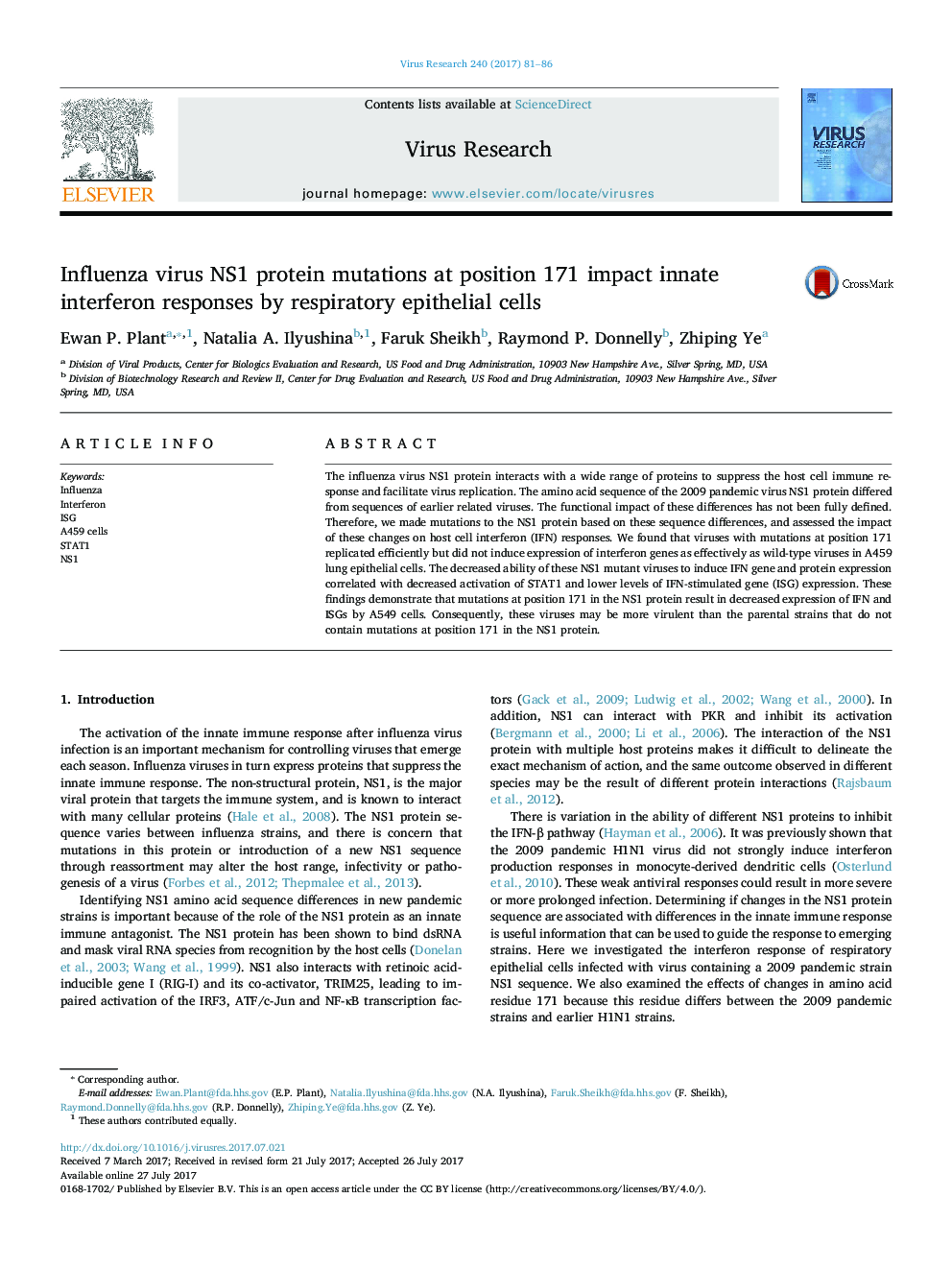| Article ID | Journal | Published Year | Pages | File Type |
|---|---|---|---|---|
| 5675293 | Virus Research | 2017 | 6 Pages |
â¢Influenza A virus NS1 protein suppresses host cell immune responses.â¢Mutations at position 171 result in decreased interferon expression.â¢Effect is context specific, not amino acid specific.
The influenza virus NS1 protein interacts with a wide range of proteins to suppress the host cell immune response and facilitate virus replication. The amino acid sequence of the 2009 pandemic virus NS1 protein differed from sequences of earlier related viruses. The functional impact of these differences has not been fully defined. Therefore, we made mutations to the NS1 protein based on these sequence differences, and assessed the impact of these changes on host cell interferon (IFN) responses. We found that viruses with mutations at position 171 replicated efficiently but did not induce expression of interferon genes as effectively as wild-type viruses in A459 lung epithelial cells. The decreased ability of these NS1 mutant viruses to induce IFN gene and protein expression correlated with decreased activation of STAT1 and lower levels of IFN-stimulated gene (ISG) expression. These findings demonstrate that mutations at position 171 in the NS1 protein result in decreased expression of IFN and ISGs by A549 cells. Consequently, these viruses may be more virulent than the parental strains that do not contain mutations at position 171 in the NS1 protein.
